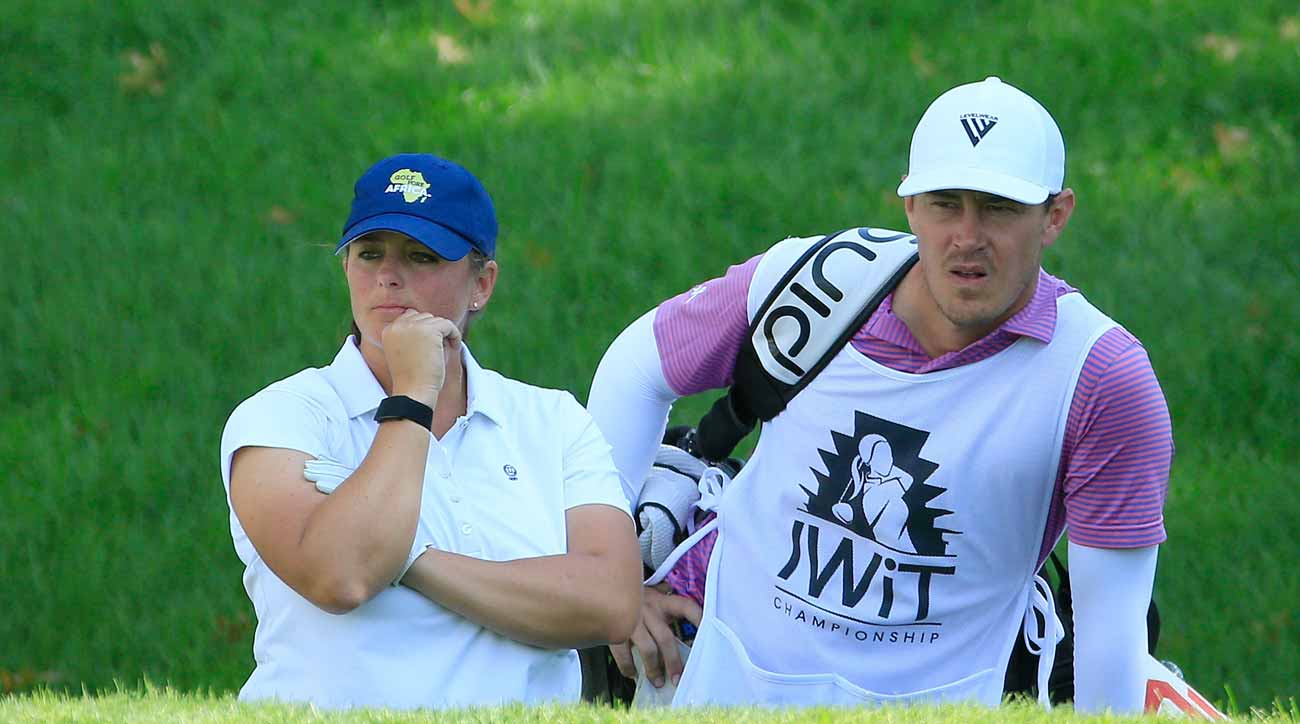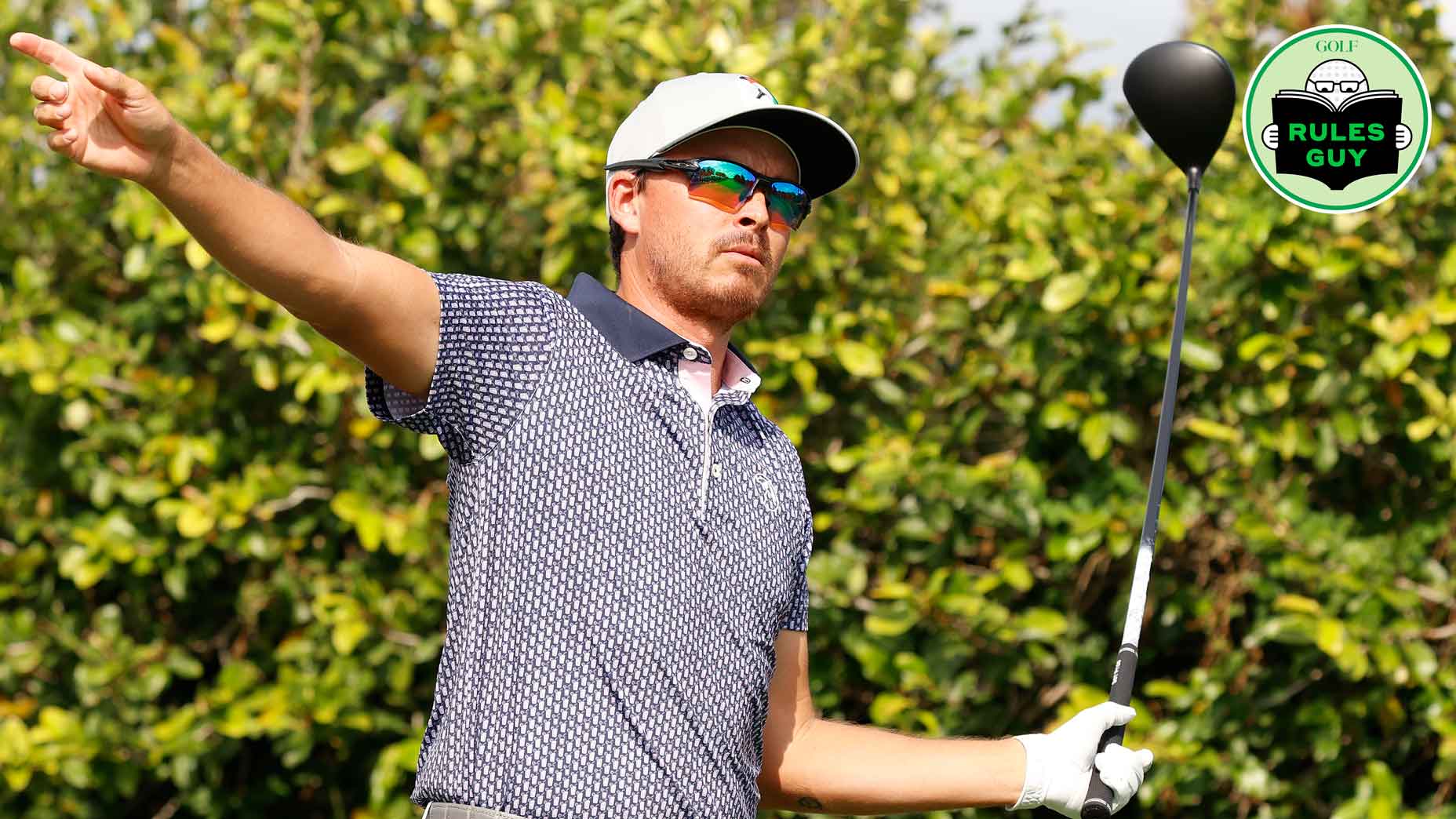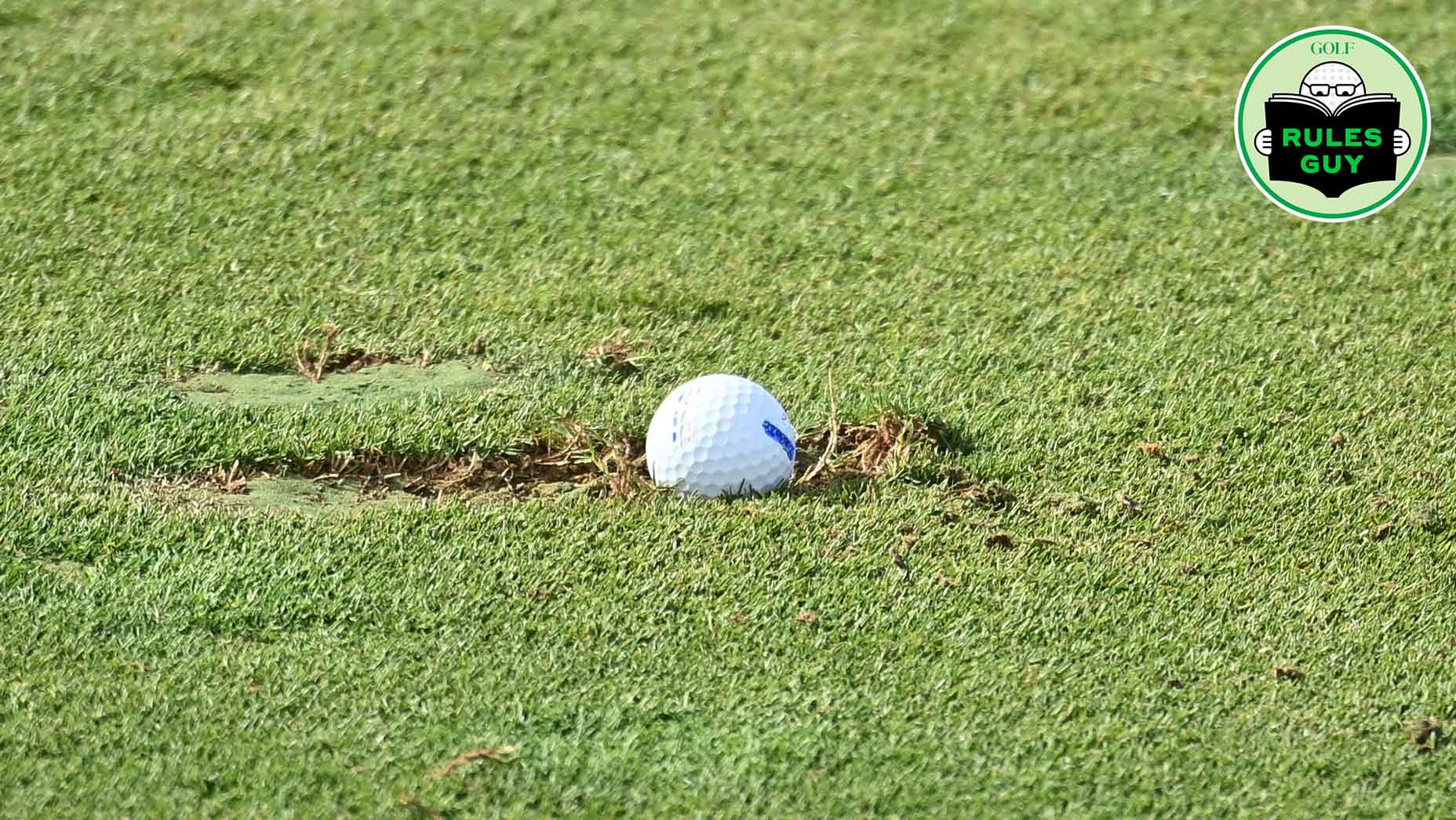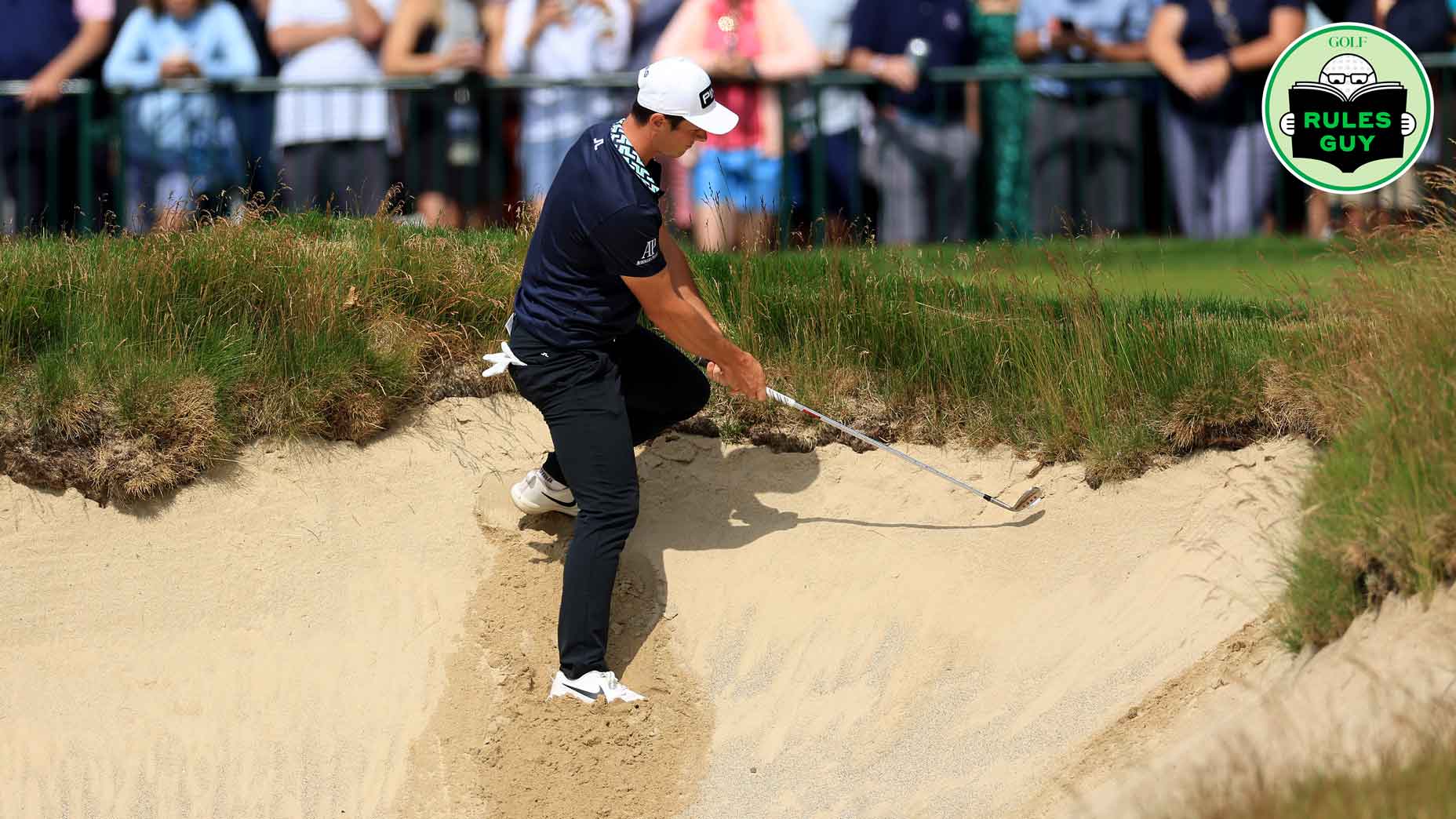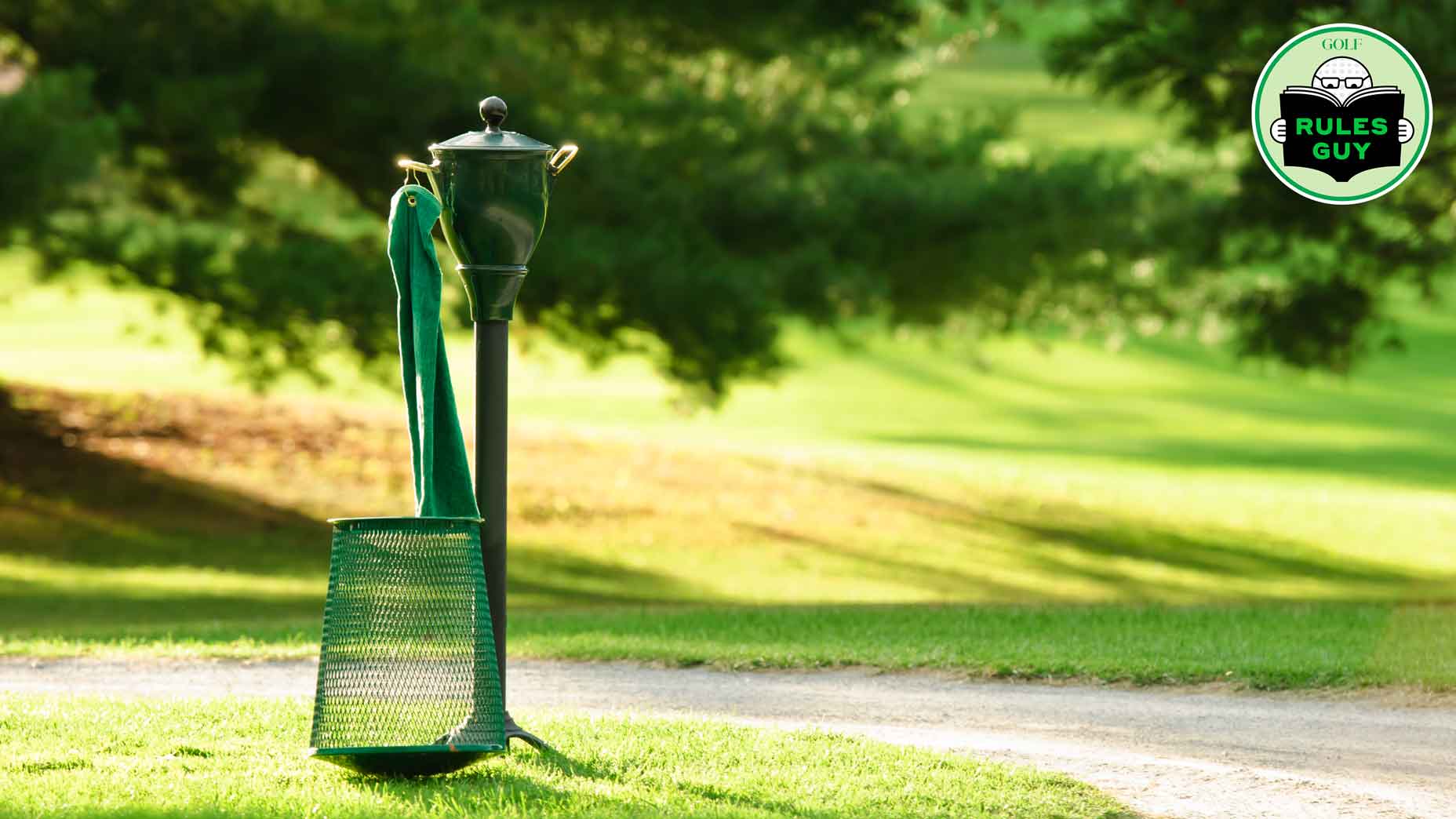 Rules Guy: My ball got tangled up in a wrapper. Can I remove it without penalty?
Rules Guy: My ball got tangled up in a wrapper. Can I remove it without penalty?
How Ben Hogan used ‘club-hawking’ loophole to help win U.S. Open
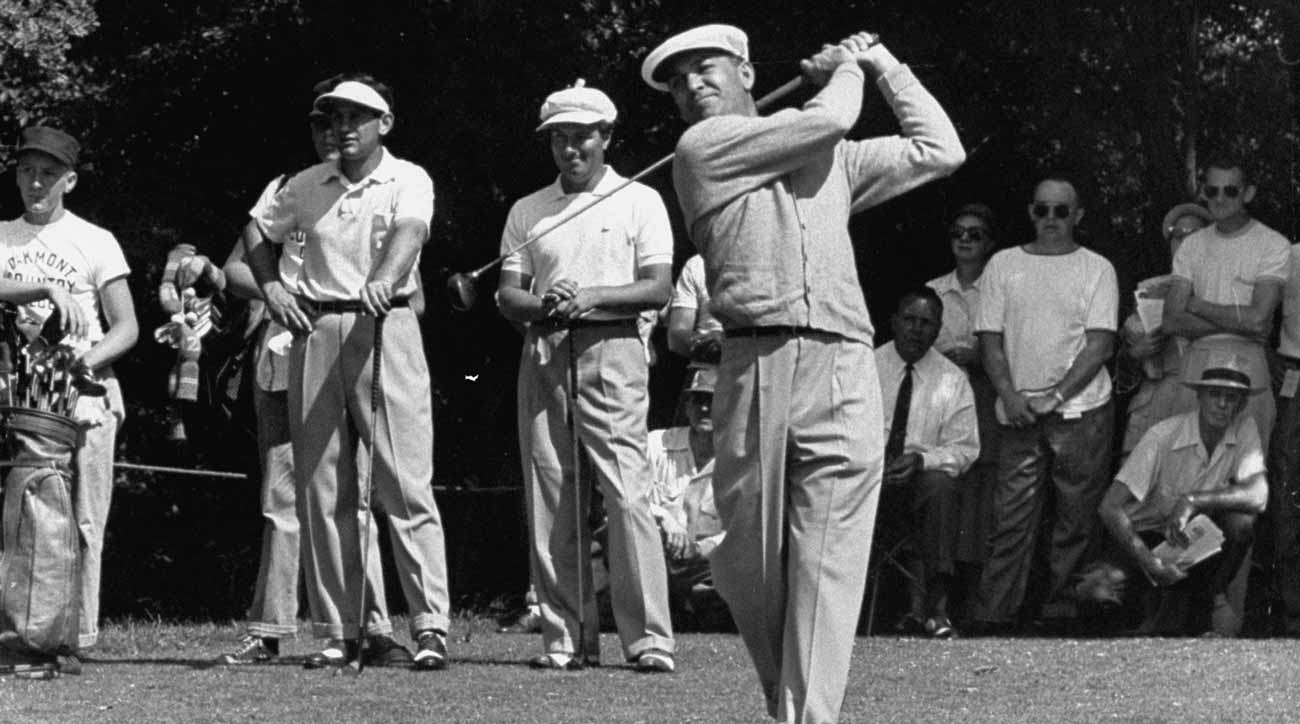
If you’ve wandered near golf’s hot take furnace in recent days, there’s a good chance you’ve felt the heat of various commentators (and commenters) chiming in on the rules controversy that came out of last week’s LPGA Q-Series.
To recap the incident: One player (Kendall Dye) gestured to the caddie of her playing partner (Dewi Weber) to ask what club they’d selected on a par-3. Their third playing partner (Christina Kim) noticed, consulted with a rules official and brought up the incident after the round. Rule 10.2, which covers “advice and other help,” dictated a two-shot penalty for each player involved. Those penalties were costly, and neither player made it through qualifying.
But although golf’s rules don’t allow one player to ask another what club they selected, there are no rules against, uh, careful observation. Enter Ben Hogan.
ADVERTISEMENT
Jeff Martin, a golf historian working on a book about Hogan, posted an insightful newspaper clipping to Twitter in which The Hawk described his strategy for finding out his playing partner’s club selection. The article, written by Arthur Daley for the New York Times, recapped Hogan’s win at Oakmont in the 1953 U.S. Open. The selection in question:
“On Ben’s final two rounds he was paired with Dick Metz. Invariably Metz had the “away” ball, requiring him to shoot first. So Hogan unfailingly walked across the fairway, stationed himself alongside of Metz’ caddie and waited for Dick to select a club. Did that mean anything?
‘Of course it did,’ answered Hogan with a grin. ‘If Dick was short with a 2 iron, I’d use a 1. Or if he was long with it, I’d switch to a 3. He helped me make up my mind. We agreed most of the time although he did use the wrong club on the eighteenth.’ Metz overclubbed into a trap. Hogan hit the green for birdie.”
I had to laugh at the commentary re: LPGA club sharing. Hogan openly talked about how he "hawked" Dick Metz's club selection during the final 36 holes at Oakmont in 1953. Who thinks he should be stripped of that win? @chambleebrandel @JerryFoltzGC @golf_strange @BradFaxon pic.twitter.com/oak2hE5chn
— Jeff Martin (@jeffygolf) November 5, 2019
What you can learn from Hogan is this: You’re more than welcome to go observe what club someone else is hitting as long as you don’t ask or, say, move a towel in that player’s bag to get a better look at their clubs. You can look! You just can’t ask — or touch.
This tradition lives on at every level of competitive golf, of course. Tiger Woods peeks at competitors bags on the tees of par-3s. Phil Mickelson does it, too. Stewart Cink’s caddie Kip Henley acknowledges that he’d make the same extra effort as Hogan to cross the fairway to conduct some research of his own, too, with this philosophy: “information is important sometimes.”
I have walked 20 or 30 yards across a fairway before to hawk a guys bag before my guy hit. If your guy wants you to get a fellow competitors club you go get that club. Call it stupid if you wish but information is important sometimes.
— KIP HENLEY (@KipHenley) November 6, 2019
Tough to argue with that.
ADVERTISEMENT


